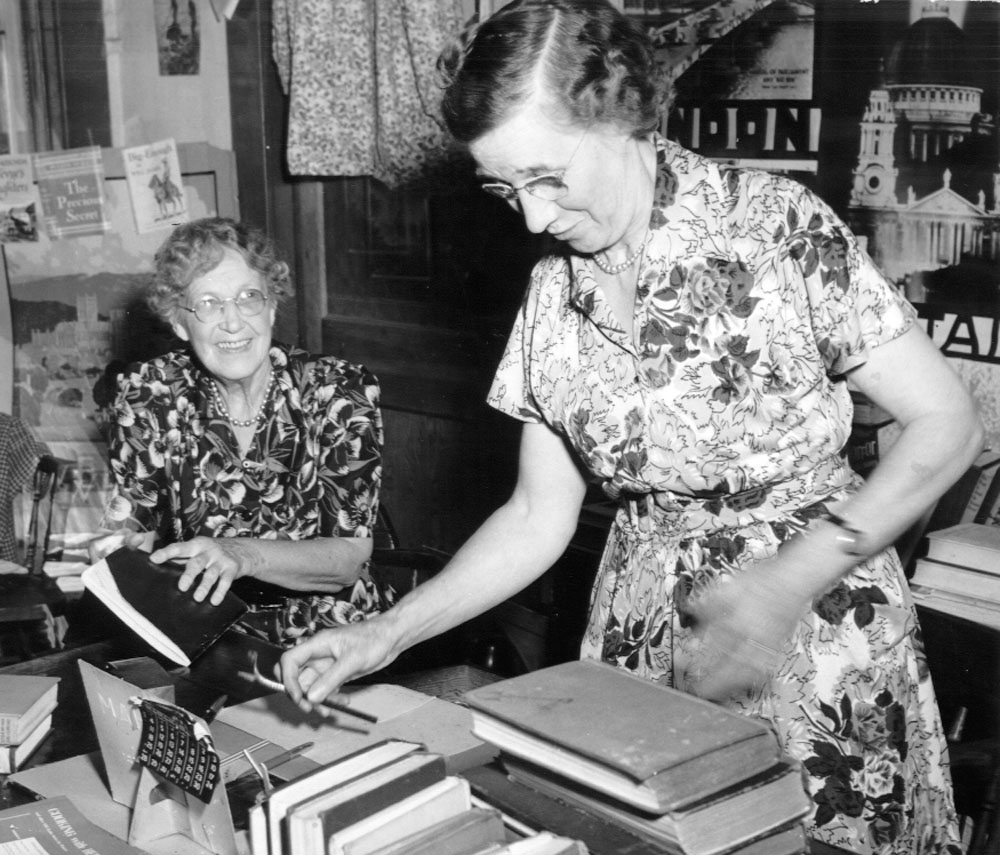
The very first district library, run by Eliza Mary Pentreath, was located in the upstairs of the old 1892 municipal hall on Callaghan Avenue. On October 2, 1930 the ‘Free Public Library’ opened in Haney. The Gazette reported that “nearly a hundred of the leading citizens had gathered at the Municipal Hall, Haney, where, in the upper chamber was to be the library of many thousands of the best books of the day on pretty well every known subject, the facility being the gift of the Carnegie Library Commission to the leading centers or places in British Columbia.”
One Mr. Ley described the library like so: “dark and dismal and only accessible of one was able to climb an inside winding, gloomy staircase or an outside ladder-type entrance.” While the facility may have left something to be desired, the residents of Maple Ridge were just happy to have a place to go to get their books.
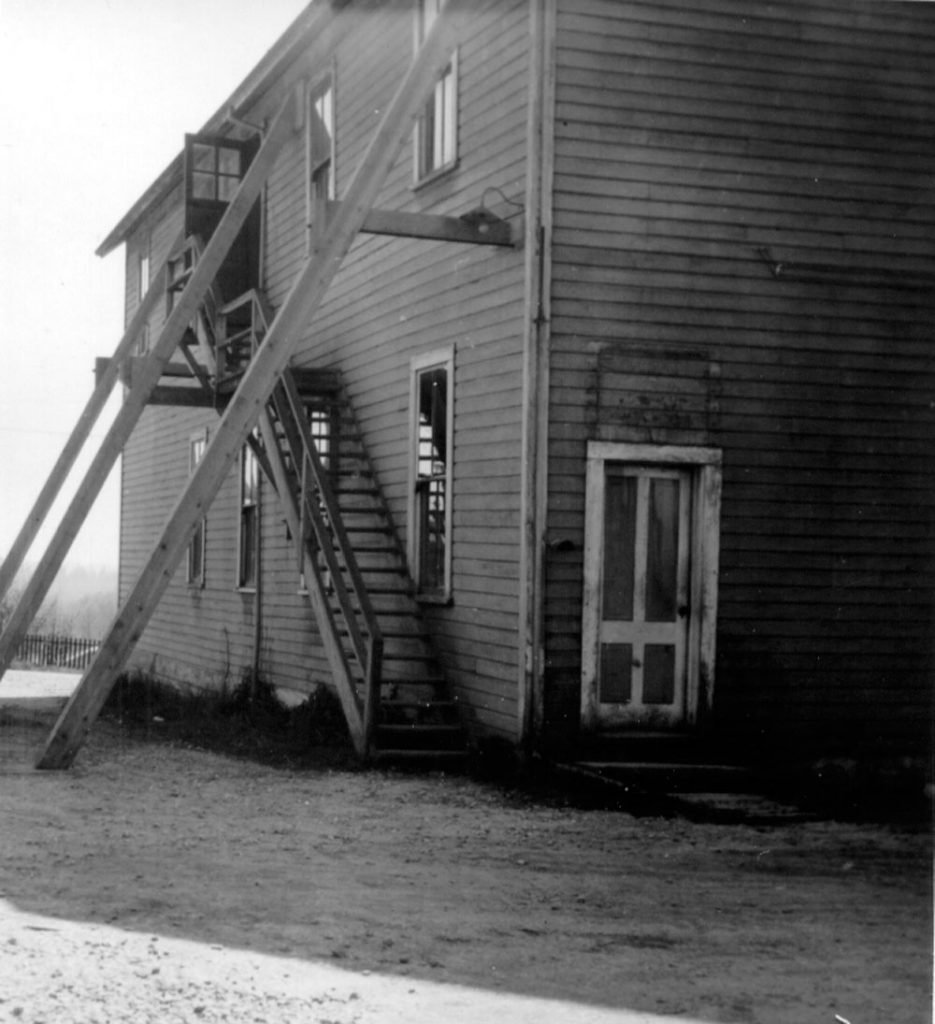
Before the first library was opened, Maple Ridge residents could take advantage of the Fraser Valley book van, which would travel from Ladner to Hope. The van, when stopped, had books displayed on shelves along the outside and would make calls at schools, grocery stores, gas stations and even rural crossroads. It was the first initiative of the Fraser Valley Regional Library system, established 1930. The district had a few small libraries – run by citizens without public subsidy – that could be used, such as the Finnish library in Webster’s Corners located in Sampola Hall, or the library run by the Women’s Institute that was run out of the home of Mrs. Rolley in Whonnock.
The libraries started out as a free service – including the book vans – as all were supported by volunteer labour with costs for books and vans supported by the Carnegie grant. In 1934, a plebiscite was held in all Fraser Valley communities to ask people to commit to a tax to continue the book van program and support the stationary libraries. The “Yes” side won by a large majority.
Beginning in 1934, there was a 75 cent tax for the operation of the library. During the Depression, an individual was hired to go by bicycle all around the district to collect this tax. One person remembers this job “as the worst job I ever had,” because people did not always want to pay up, especially those who did not speak English or did not use the library. Eventually, the municipality gave up on this system of taxation, and included the library tax in the regular yearly bill.
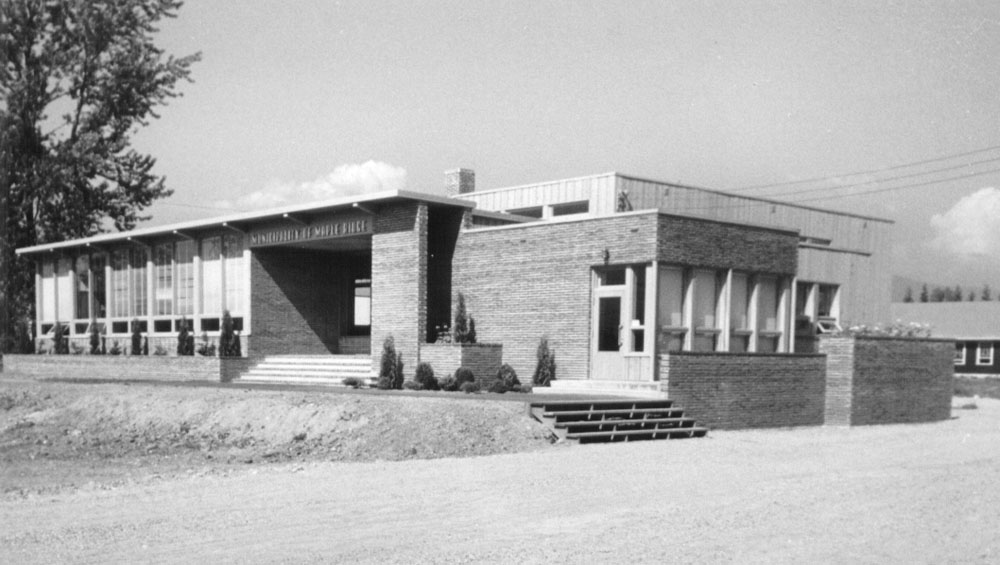
In May of 1951, the municipal hall was replaced by a brick building on 8th Ave (now 224th Street), and so the library moved too. This second installment of the library was placed into a corner room at the front right hand side, and circulation grew that year to 23,300 books. Bertha Dean was the librarian with Eliza Pentreath at this location, with Laura Humphries as assistant. Pentreath left the library in the 1960s when she was in her eighties.
In 1963 the library had to move once more, because the municipal hall needed their space for the office of Mayor Peter Jenewein. The library was relocated in the Foster Block, on the north side of Lougheed Highway and west of 224th Street, and increased circulation to 77,150 books.
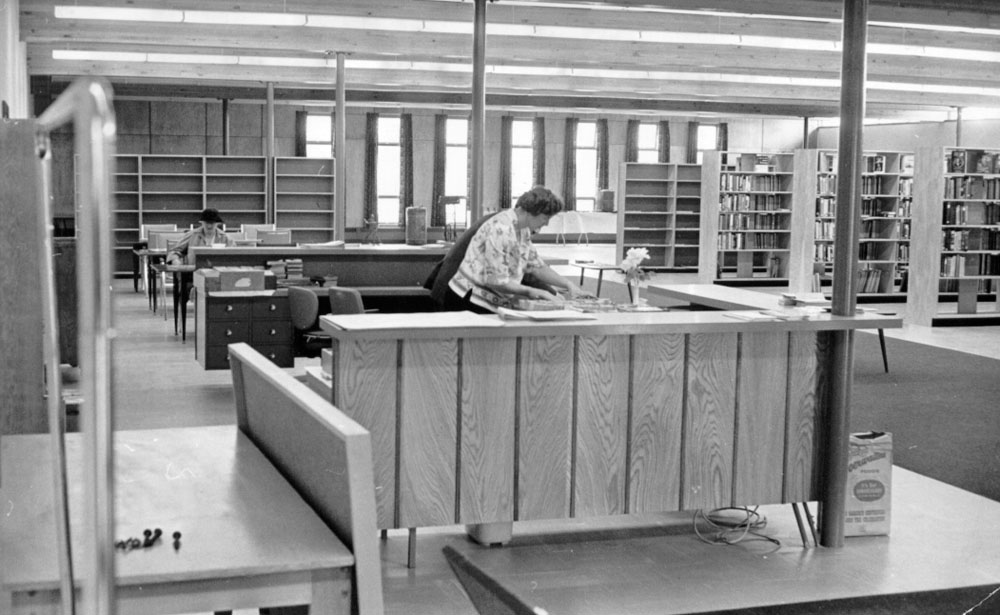
A fourth library was opened as part of the 1967 Centennial celebrations. The biggest library so far, and the first one to be housed in a building specifically for its purposes, was located right next to the arena. When that library was outgrown, the empty space became the “Old Library Auditorium” and provided the municipality with much needed public gathering space.
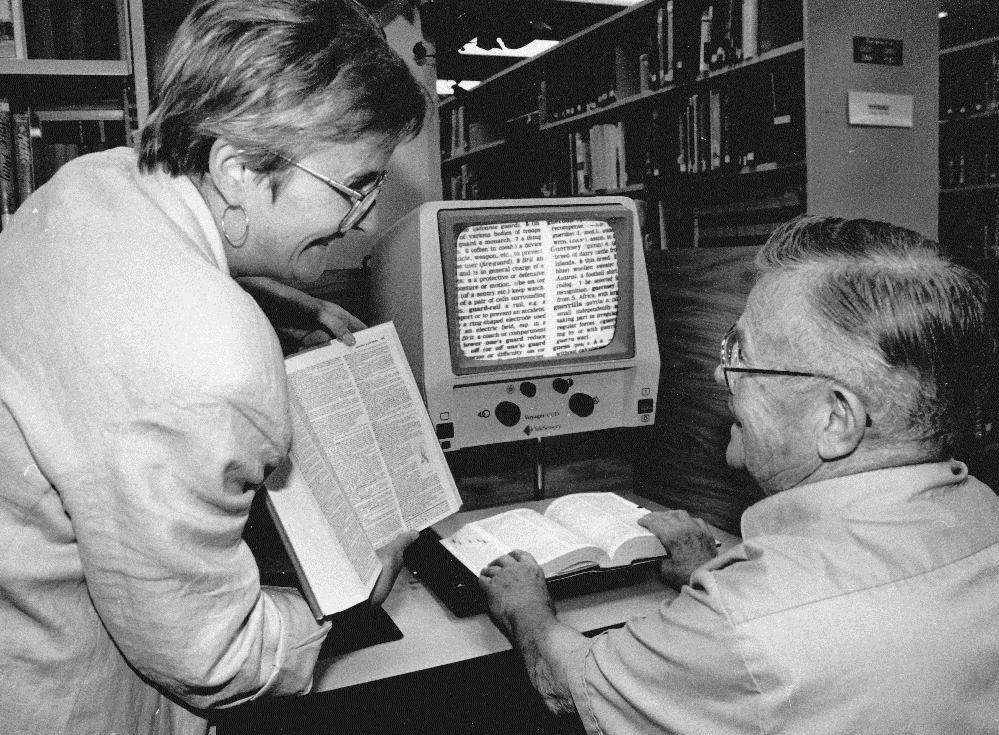
In 1986, Laura Humphries became the head librarian at the fifth library, which was located in the still larger and more accessible building in the Mager Centre, on Dewdney Trunk Road at Fraser Street.
The sixth and present library is a major component of the civic centre on Haney Place, and attracts hundreds of thousands of people each year. It unofficially opened 8 March 2001, and celebrated with a grand opening on March 17. The new two-story library, one of the flagship facilities for the Fraser Valley Regional Library system, contained 36,000 square feet. The new library included numerous new features to make searches easier: 28 internet-capable computers, an audiovisual collection, an extensive children’s reference section, a study carrel area, a regular reference collection, and a history section created with help from the Maple Ridge Museum, which includes the British Columbian newspaper on microfilm from 1890 to 1922, and the Gazette Newspaper dating all the way back to 1922.